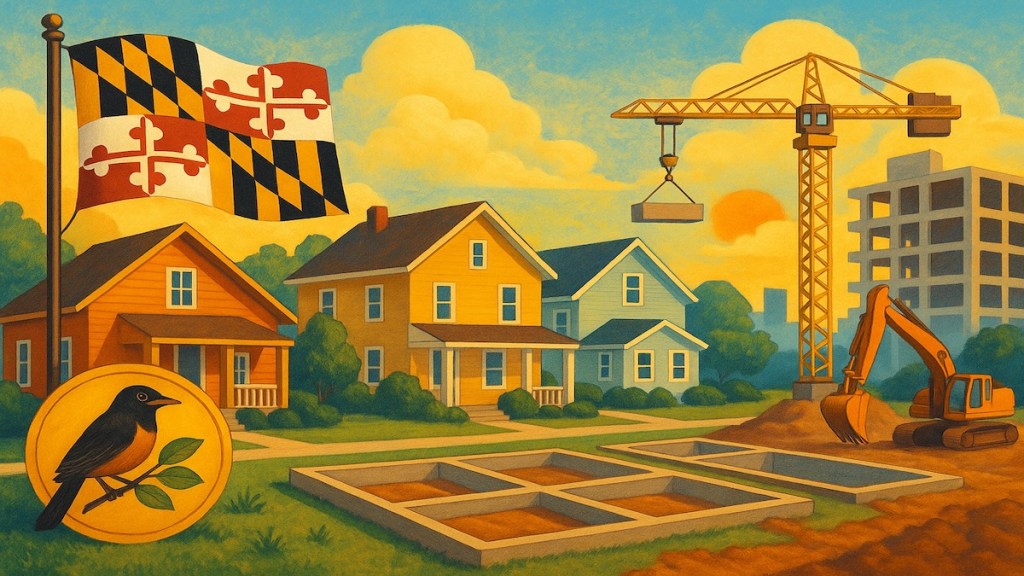Maryland Gov. Wes Moore signed an executive order Wednesday aimed at addressing Maryland’s worsening housing shortage — calling the situation an “unprecedented and rapidly growing housing affordability crisis.”
The order directs state agencies to speed up construction of affordable housing, make better use of state-owned land and cut down on permitting delays that slow development.
Moore said Maryland is short at least 96,000 housing units — a gap that has been widening for more than a decade.
“The increasing unavailability and unaffordability of safe, stable, livable housing for working families has created an imminent threat of widespread social and economic disruption,” the order states.
Changes over next two years
The plan requires the Maryland Department of Housing and Community Development and the Department of Transportation to prioritize building housing near transit stations and on state-owned land.
Agencies must identify surplus state property that can be converted into housing and move quickly to get proposals from developers.
The executive order also creates a housing ombudsman to help navigate what Moore described as burdensome local and state permitting processes.
By 2026, state agencies will be required to digitize permit applications and allow developers to use third-party reviewers to speed up approvals.
To track progress, the Department of Housing and Community Development will publish statewide and local housing production targets by January 2026 and release annual reports starting in 2027.
Sense of urgency
Moore said the changes are necessary to keep Maryland competitive.
Without action, he warned the state risks “the inability to retain new people entering the workforce, resulting in a lack of innovation and a stifling of overall economic development.”
The order also establishes a new Maryland Housing Leadership Award that recognizes local governments that meet or exceed housing goals or adopt policies that promote development.






